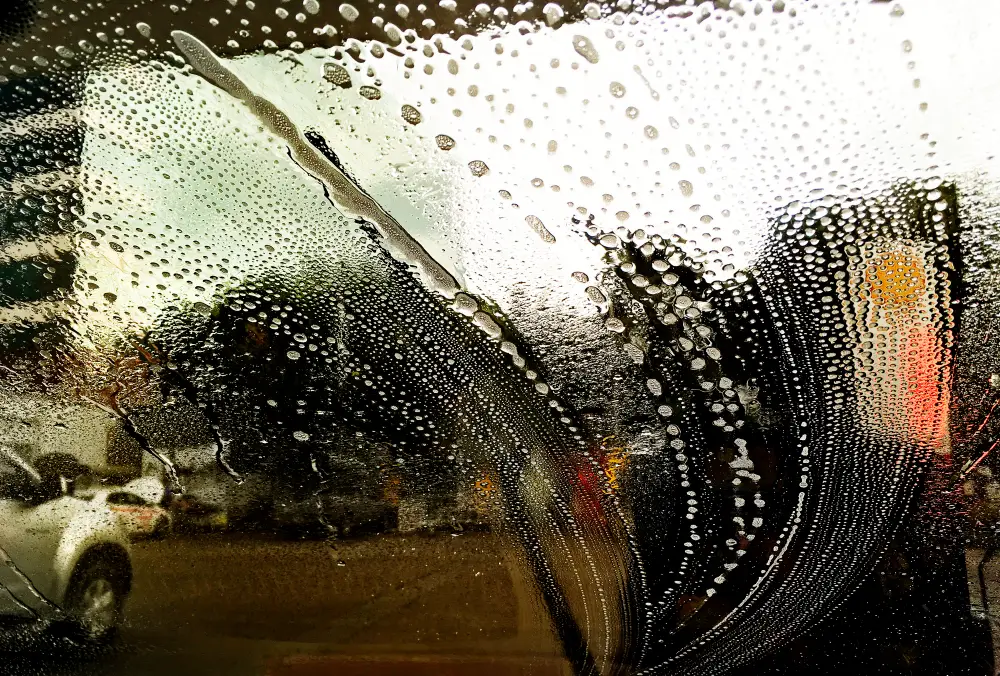Windshield wipers are an essential component of any vehicle, especially during rainy or snowy weather. However, they can also be a source of annoyance due to the noise they produce.

In this blog post, we will explore the reasons why windshield wipers make noise and what can be done to reduce it.
Key Takeaways
- Windshield wiper noise arises from factors like wiper blade material, windscreen waviness, and wiper speed.
- Reducing this noise involves replacing worn-out blades, cleaning the windshield, using silicone blades, and adjusting wiper speed.
- As modern vehicles become quieter, addressing wiper noise is essential for a comfortable and safe driving experience.
Basic Principles of Operation Noise of Wiper System
According to a study by SAE International, there are several types of noise that can be produced by windshield wipers, including chattering noise and reversal noise.
Chattering noise is a low-frequency vibration of 100 Hz or less, while reversal noise is an impact sound with a frequency of 500 Hz or less produced when the wiper changes direction.
These noises can be exacerbated if one uses sub-par wiper blades.
To ensure a smoother experience during heavy rain, consider checking out the best windshield wipers for heavy rain.
Why Do Windshield Wipers Make Noise?
1. Sign of Impending Replacement
Unusual noises from your windshield wipers can be more than just a temporary annoyance; they often serve as an early warning sign that the wipers are nearing the end of their lifespan.
Over time, wiper blades deteriorate due to various environmental and usage factors, leading to reduced performance and increased noise during operation.
If you notice persistent or increasing noise from your wipers, it might be time to consider a replacement to ensure clear visibility and safe driving.
Additionally, if you’ve been facing issues with your wipers and are confused about whether to repair or replace them, this article on when to repair and when to replace windshield wipers might help.
2. Windscreen Waviness
Another factor that can contribute to windshield wiper noise is windscreen waviness. A study by ResearchGate found that the waviness of the windscreen can cause the wiper blade to generate a squealing noise.
This noise is caused by the blade vibrating against the uneven surface of the windscreen. It’s also interesting to note that sometimes the cause of such noises is not just the wipers, but issues with the windshield itself.
3. Wiper Blade Material
The material of the wiper blade can also affect the noise it produces. According to HELLA Wiper blades, rubber blades are more likely to produce noise than silicone blades.
This is because rubber blades are more prone to hardening and cracking, which can cause them to skip or chatter across the windshield.
In fact, this very skipping or chattering can sometimes result in windshield wipers leaving streaks, which can impair visibility.
4. Speed of the Wiper
The speed of the wiper can also affect the noise it produces. A study by Eprint UTM found that the noise produced by the wiper increases with the speed of the wiper.
This is because the faster the wiper moves, the more force it exerts on the windshield, which can cause it to vibrate and produce noise.
How to Reduce Windshield Wiper Noise
Now that we know the factors that contribute to windshield wiper noise, let’s explore some ways to reduce it:
- Replace the Wiper Blades: If your wiper blades are old or worn out, they are more likely to produce noise. Replacing them with new ones can help reduce the noise. If you’re in the market, here’s where you can find affordable windshield wipers.
- Clean the Windshield: A dirty windshield can cause the wiper blade to skip or chatter across the surface, producing noise. Cleaning the windshield regularly can help reduce this noise. Using the right kind of fluid, like choosing between windshield wiper fluid vs. tap water, can make a difference.
- Use Silicone Wiper Blades: As mentioned earlier, silicone wiper blades are less likely to produce noise than rubber blades. Consider switching to silicone blades if you are experiencing a lot of noise.
- Reduce the Speed of the Wiper: If you are driving in light rain, consider reducing the speed of the wiper. This can help reduce the force exerted on the windshield, which can reduce the noise. If you ever face an issue where the windshield wiper fluid is not coming out, there are DIY fixes available.
Conclusion
Windshield wipers are an essential component of any vehicle, but they can also be a source of annoyance due to the noise they produce. The noise can be caused by various factors, including the design of the wiper blade, the condition of the windshield, and the speed of the wiper.
However, there are several ways to reduce the noise, including replacing the wiper blades, cleaning the windshield, using silicone wiper blades, and reducing the speed of the wiper. By following these tips and understanding potential issues like how often to replace the windshield wiper fluid or the reasons why a wiper might not be touching the glass, you can enjoy a quieter and more comfortable ride during rainy or snowy weather.
Always remember to ensure the safety and health of your windshield as improper wiper usage can sometimes damage your windshield.
And if you’re environmentally conscious or looking to save a few bucks, you can even learn how to make your own windshield wiper fluid.
